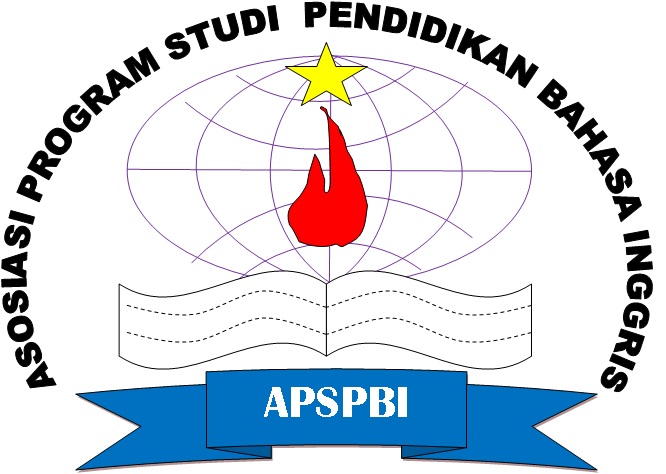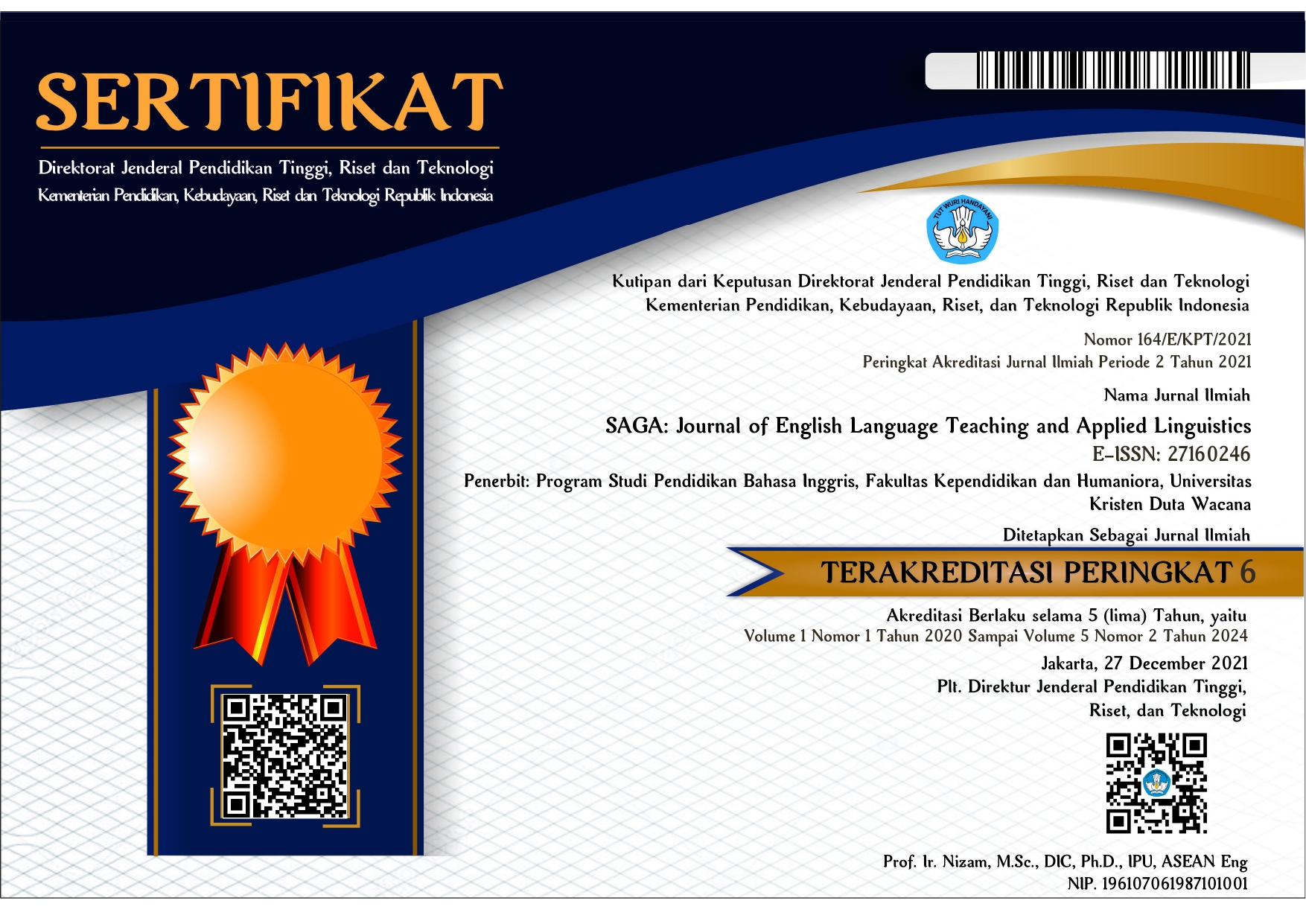Student’s Perspective of Using Quora: An Authentic Learning Experience in Digital Platform
DOI:
https://doi.org/10.21460/saga.2023.41.152Keywords:
Quora; authentic learningAbstract
The purpose of this study was to explore the effectiveness of Quora based on the perception of higher education students at Islamic State University of Semarang, specifically about authentic experience of reading and writing practice in expression of asking and giving opinion. Descriptive method was used as the research design. Questionnaire and interview were used to investigate student’s attitude toward the Quora platform. Based on student’s questionnaire and interview result’s analysis, the experience of doing authentic practice is interesting. The study showed that more than 85% of students admit the effectiveness of Quora to give authentic learning experience and to help them adapt in the real situation.
References
Airasian, P., & Gay, L. R. (2000). Educational research: Competence for analysis an application (6th ed.). Merrill Prentice Hall.
Alyani. R. (2016). Developing writing materials by using genre-based approach for the first semester of the tenth-grade students at SMA Piri 1 Yogyakarta. Universitas Negeri Yogyakarta.
Andersson, S. B., & Andersson, I. (2005). Authentic learning in a sociocultural framework: A
case study of non-formal learning. Scandinavian Journal of Educational Research, 49 (4), 419–436. https://doi.org/10.1080/00313830500203015
Berardo, S. (2006). The use of authentic materials in the teaching of reading. The Reading Matrix, 6(2), 64-66.
Brown, J., Collins, A., & Duguid, P. (1989). Situated cognition and the culture of learning. Educational Researcher,18, 32–42. https://doi.org/10.3102/0013189X018001032
Christmas, D. (2014). Authentic pedagogy: Implications for education. European Journal of
Research and Reflection in Educational Sciences. 2 (4), 51-57.
Diamond, S., Middleton, A., & Mather, R. (2011). A cross-faculty simulation model for authentic learning. Innovations in Education and Teaching International, 48 (1), 25–35.
Fitzsimmons, P., & Lanphar, E. (2011). When there’s love inside there’s a reason why: Emotion as the core of authentic learning in one middle school classroom. Literacy Learning in the Middle Years, 19(2), 35-40.
Harmer, J. 2004. How to teach writing. Pearson Education
Jati, A. G. (2018). The use of smartphone platforms in English language teaching. Jurnal Sosioteknologi, 17(1). 9-19.
Littlewood, W. (2011). Communicative language teaching: An expanding concept for a changing world. In E. Hinkel (Ed.), Handbook of research in second language teaching and learning (pp. 541-557). Routledge.
Ozverir, I., Osam, U. V., & Herrington, J. (2017). Investigating the effects of authentic activities on foreign language learning: A design-based research approach. Educational Technology & Society, 20(4), 261–274.
Suhartono, S. & Laraswati, I. (2016). The use of visual media in teaching writing. Journal of English Teaching and Research, 1(1), 37-43. https://doi.org/10.29407/jetar.v1i1.274
Zhang, S. (2016). Mobile English learning: An empirical study on an APP, English fun dubbing. iJET, 11(12), https://doi.org/10.3991/ijet.v11i12.6314
















